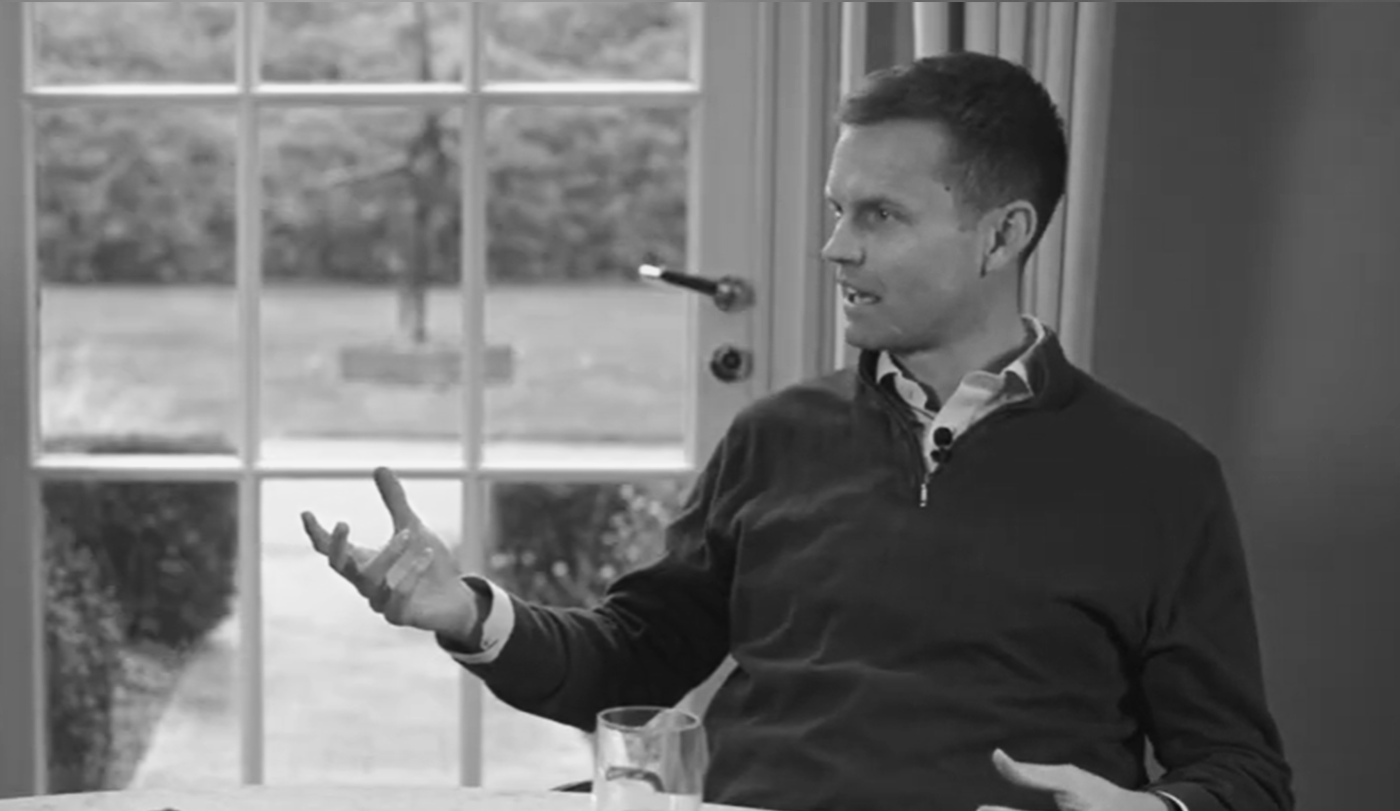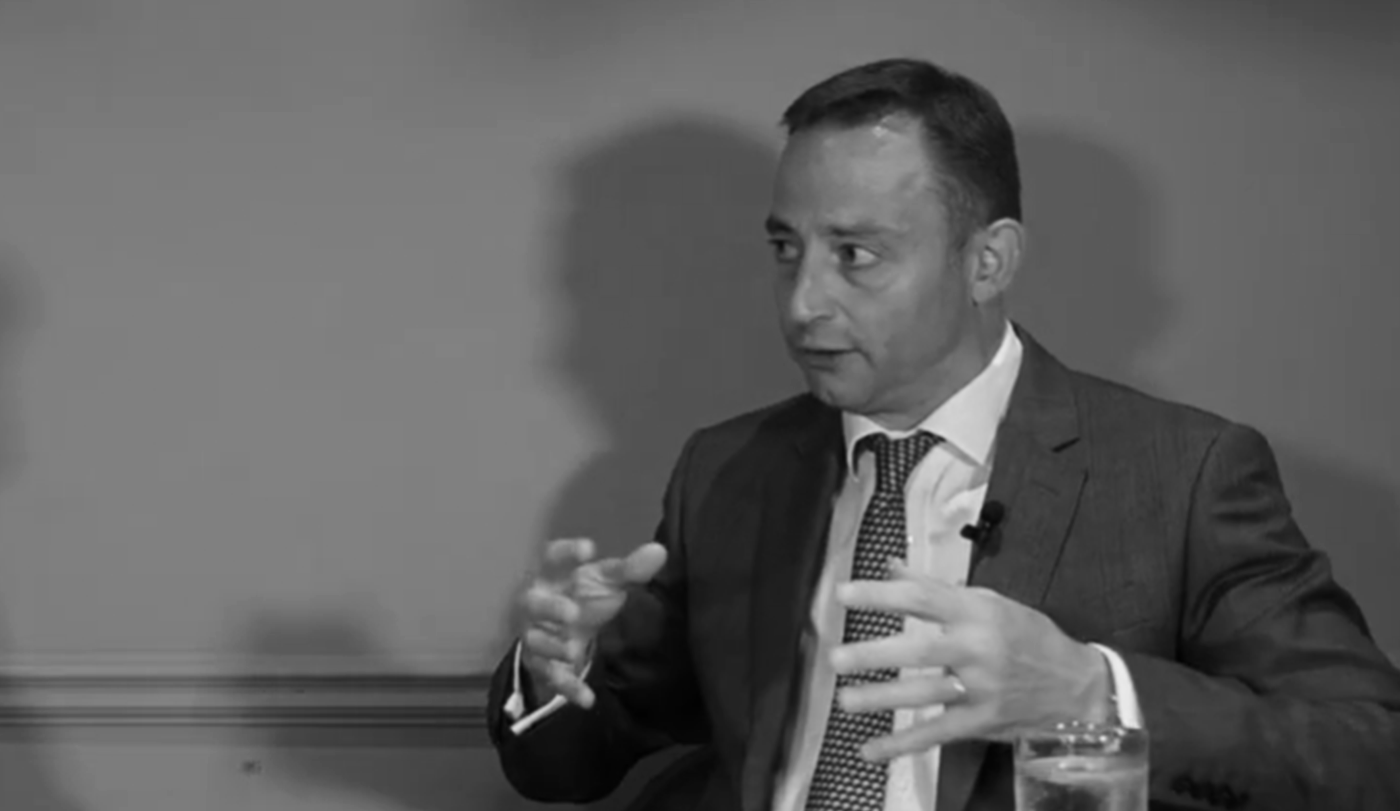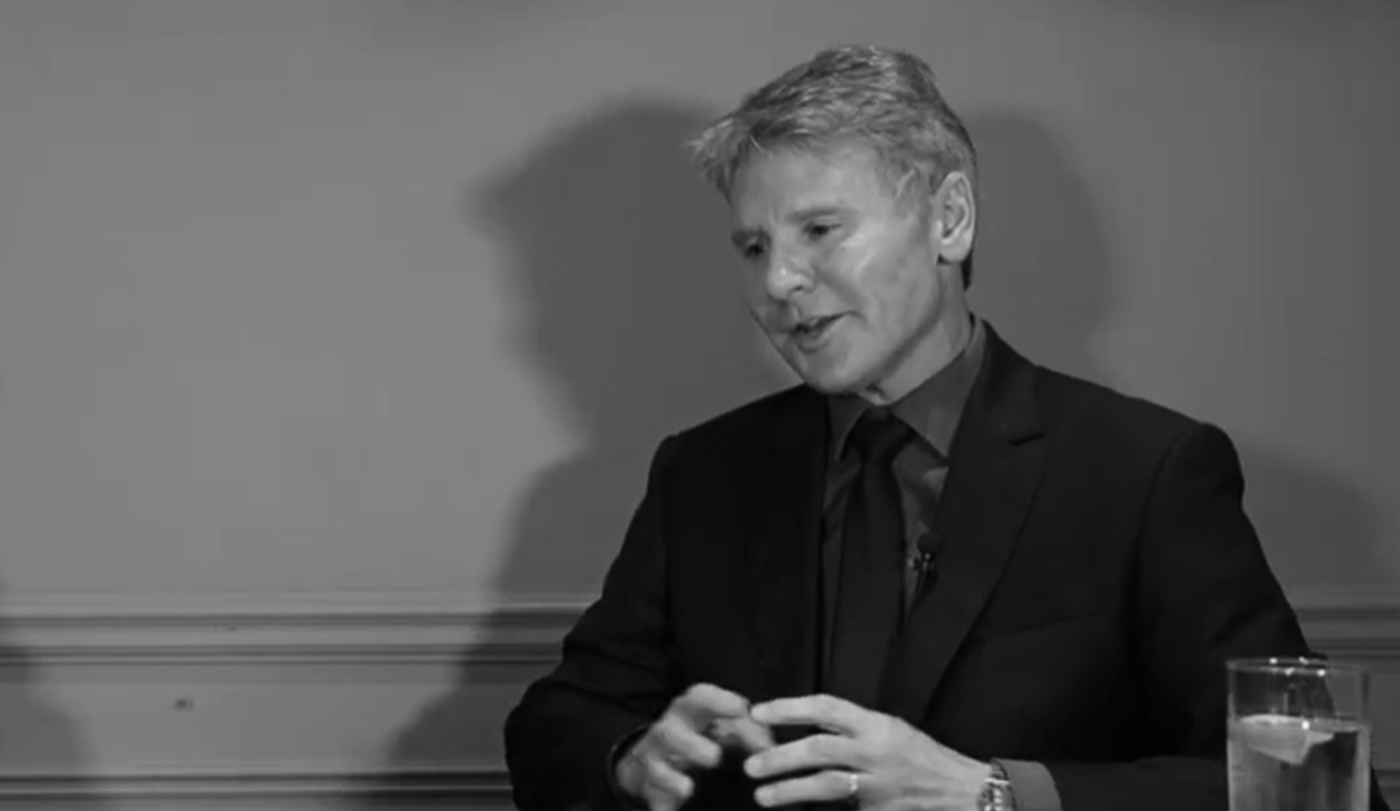On manager ‘energy’, encouraging cognitive diversity – and the lure of busses
Understanding what drives investment performance means also understanding the people responsible for it, believes Dipesh Mesuria, head of fund research at Bordier UK.
“And you do need an investment that is understandable,” he tells Wealthwise editorial director Julian Marr in our latest Choice Words episode, above. “Sometimes investments are overly complicated but I always look at it this way: if I could not explain to my mother why we are invested in something, I probably don’t really understand it myself. So understand what it is you’re investing in, understand the process behind that, understand the manager, understand the team.”
Mesuria is also looking for suitably-directed passion in a manager – particularly if their fund is not doing well. “When we interview managers, the worst thing is if they look distracted – they are staring out the window or they look beaten down – and don’t seem to have that energy,” he explains.
We have to remember we are investing the money on behalf of our clients and a team and an investment process that’s aligned with that is very important.”
“If the fund isn’t performing but they still have energy – and they’re banging the table and saying, There’s great value here – that’s what we’re looking for in a manager. And, finally, alignment with the client – we have to remember we are investing the money on behalf of our clients and a team and an investment process that’s aligned with that is very important.”
As for potential red flags, Mesuria says: “If I was being flippant, I’d say they are the exact opposite of what I’m looking for in an investment but I would also add in style drift – managers who are chasing performance because they have had a period of underperformance and then they overly concentrate themselves in certain positions. It is not just about understanding what is driving performance but understanding the people behind that performance as well.”
Rewire the sausage machine
Later in the conversation, Mesuria highlights the need for the investment world to focus more on social mobility and cognitive diversity. “When it comes to social mobility, there are some great initiatives in terms of university graduates and so on – but you have to get to people at a much younger age,” he says. “You have to go into the schools to provide financial education at that point and show a pathway into the City and into finance.
“On the cognitive diversity side, meanwhile, we are very focused on doing a degree, doing professional exams and going through that sausage machine – but, if you’re cognitively diverse, you might not be able to do exams well. That doesn’t mean you have nothing to offer, of course – and so we have to do things slightly differently.” To that end, Mesuria argues, it is important AI and technology make it easier to apply for jobs.
“The days of the ‘milk round’ may be almost non-existent now, but people can still apply for and interview for loads of different jobs,” he continues. “What that normally means, though, is the HR departments are overwhelmed – so then they start applying filters to whittle down the CVs.
“But then, as a recruiting manager, you’re like, All my CVs look the same – but they only look the same because you’ve applied the same filter to them all! You could see that as a hindrance but you could also use it as a positive and go, Well, I can use AI to ask different types of questions that target certain characteristics and use that as a filter – and then you can end up with a diverse range of CVs in front of you.”
That, adds Mesuria, only addresses half of the problem, however. “Once people are in the system, how do you keep them there?” he asks. “As a business, as an industry, we have to do more to retain people. One of the things Bordier does very well, for example, is flex the hours of the working day to accommodate better balance. That should help because it is not enough just filling the system – you have then got to retain the people in the system as well.”
A full transcript of this episode can be found after this box while you can view the whole video by clicking on the picture above. To jump to a specific question, just click on the relevant timecode:
00.00: What excites you about the current investment outlook? What worries you?
03.20: What do you most look for in an individual investment? What constitute ‘red flags’?
05.11: To what degree should professional investors be thinking beyond so-called ‘traditional’ investments? Towards what?
06.37: What drives your approach to client communications? Should professional investors aim to attract the ‘right’ type of client
09.26: Do you see AI as a threat or an opportunity to professional investors – or both?
10.58: What was your path into investment – and, if you hadn’t taken it, what do you think you would be doing now?
13.53: What was the biggest investment mistake you are prepared to admit to – and what did you learn from it?
14.50: What is the best piece of advice you have ever been given?
16.10: Are we a more diverse and inclusive industry today? What more can we do?
20.27: Two Choice Words recommendations, please – one a book; one a free choice?
Transcript of Choice Words Episode 22:
Dipesh Mesuria, with Julian Marr
JM: Well, hello and a very warm welcome to another edition of ‘Choice Words’, where we get to speak to the great and the good of UK fund research and UK fund selection and find out what makes them tick. I am Julian Marr, editorial director of Wealthwise, and today I am delighted to be talking to Dipesh Mesuria, who is head of fund research at Bordier UK. Hello, Dipesh.
DM: Hello. Thank you for having me.
JM: It is my absolute pleasure.
DM: I’m not sure about the ‘great’ – but I hope I am the ‘good’!
JM: Well, it is great to see you at least – and good to have you here. So let’s see how we go. First question, then – nice and easy as well – is, what most excites you about the current investment outlook? What gives you pause for thought?
DM: Well, we live in an interesting time right now, as far as investing is concerned. Is it evolution? Is it revolution? I’m not sure – but it’s really interesting and exciting that there is a divergence happening. The dominance of the US is certainly starting to seem to wane – and there’s an opportunity now.
And it’s really exciting for active management as well. You can clearly see that fundamentals are making a difference. But the scary thing and what worries me – though I suppose it is interesting too – is that, now, even the volatility has volatility. Are we investing based on what Trump tweets? Although it’s not ‘tweets’, is it? It’s Truth Social …
JM: What he ‘Soshes’?
DM: Yes! And that makes it difficult to invest over the long term because there is just so much short-term noise. Still, what really interests me right now is the fact that, if you can ignore that short-term noise, there is a real opportunity to lay the foundations for some excellent returns for our clients in the future.
JM: That is very interesting. We had this with a couple of our interviews a little while back, when we filmed four in advance – and then the following week, it was ‘Liberation Day’ and I was thinking, Oh no, this is really going to make what everyone said out-of-date. But actually, because they looked so far out, it almost didn’t – the market was bouncing around so much it sort of smoothed out – which is the way Trump seems to work. What do you have in your investment process to help you tune out the noise and focus – do you have a physical process in place or perhaps behavioural guidelines?
DM: Well, first of all, our process is based around our investment committee, which is made up of some of the most senior members of Bordier – I would say there is a lot of grey hair there but there are also some with no hair at all! But there is also a diversity in the sense there are some young members in there as well. And that collective decision making – where everyone has a voice – allows for some long-term thinking.
People have seen these cycles – and investments are cycles – come and go. And so we stick to our process – and the process is what’s key to everything. Make sure you have a long-term investment view and, as long as the facts don’t fundamentally change dramatically in the short term, that long-term view holds. And then stick to that process.
In praise of table-bangers
JM: Thank you. I just thought I would throw that little curveball in for you there. We have talked about the macro so let’s now focus in on the stock selection side. What counts as a ‘must-have’ investment for you? And what constitute red flags in individual investments?
DM: First of all, it is having an investment that is understandable. Sometimes investments are overly complicated but I always look at it this way: if I could not explain to my mother why we are invested in something, I probably don’t really understand it myself. So understand what it is you’re investing in, understand the process behind that, understand the manager, understand the team.
I really like it when a manager is passionate – especially when their fund is not doing well. When we interview managers, the worst thing is if they look distracted and they’re staring out the window or they look beaten down and, you know, don’t seem to have that energy.
If the fund isn’t performing but they still have energy – and they’re banging the table and saying, There’s great value here – that’s what we’re looking for in a manager. And also alignment with the client – we have to remember we are investing the money on behalf of our clients and a team and an investment process that’s aligned with that is very important.
If I was being flippant, I’d say the red flags are the exact opposite of what I’m looking for in an investment but I would also add in style drift – managers who are chasing performance because they have had a period of underperformance and then they overly concentrate themselves in certain positions. It is not just about understanding what is driving performance but understanding the people behind that performance as well.
Today’s alternative, tomorrow’s mainstream
JM: That is very interesting. You mentioned complexity and fully understanding what you buy, which brings me seamlessly onto alternative investments. To what degree do you think professional advisers should be considering alternatives or moving away from so called ‘traditional’ bonds, equities and cash?
DM: Well, I think that’s a very interesting question – because today’s alternatives will become tomorrow’s mainstream – and therefore we should always be looking for alternatives, because we should always be looking to enhance and develop that investment process. Still, in terms of whether that has a place in the client’s portfolio, I’d say, to some extent, absolutely it does – but only if you clearly understand it. You need to understand what the drivers of performance – and also what the drivers of underperformance – would be and how it blends into the overall investment strategy.
And then make sure you are not investing in a fad – that you truly understand it. So, for example, people are talking about bitcoin and things like that – and I don’t have any kind of intellectual disagreement with that – but understand what it is doing your portfolio. And, if you can invest in that, then do so. Still, I think normal investments have plenty there for us anyway so, to a limited degree, alternatives are of interest but they shouldn’t form your core investment portfolio.
Education and empathy
JM: Fair enough. Now, looking beyond your ‘law of your mother’ approach to communication, what drives your approach to talking to clients? And to what degree is it important to have the ‘right’ sort of clients at Bordier, who will come along on the full investment journey and not bail out too early – or not jump in too soon or whatever – and just be along for the same time as you?
DM: Sure. I think, to start with, I’d flip that question on its head – and almost say the client should have the right investment manager rather than investment manager have the right client. And if the client has the right investment manager, then they will naturally come along with you on the journey. What is really important in that is education and empathy because, in the modern world, information transfer is quite quick.
Someone can easily go on to Google – other search engines are available! – and look up what’s happening with Nvidia or Apple or Tesla or whatever and then come to question, Well, why don’t I have some of that in my portfolio? Now, you could say to someone who’s in a decumulation stage of their investment journey that perhaps having half their portfolio in Tesla isn’t a great idea – that’s the education part. And if you can get through to them, then that will make the difference in making sure you have the ‘right’ client.
At Bordier, our portfolio managers have really strong relationships. So, when the various market schisms have happened in the past, our portfolio managers have been very good at making sure they speak to their clients. While the FCA does a lot of good things, sometimes they do things that probably are not intended or have unintended consequences. And that ‘10% drop’ letter you immediately have to send out if a client’s portfolio has dropped 10% – in its own right, that’s quite scary.
You know, you’re having your morning coffee and you receive one of those – and then you’re like, Oh my god, what am I going to do? I’ve got sell everything! But our portfolio managers were very good at backing that up with a call saying, Don’t worry, stick with it – the investment process stands. And that makes a great client journey. And if you can talk to your clients and empathise and understand their needs, then they are with you for the long haul. We have really great client-retention ratios – so we must be doing something right!
Consuming AI v deep learning
JM: You would think so. And you were very diplomatic in your description of the FCA as well – so well played! Let’s talk about AI – as a professional investor, do you see that as a threat or an opportunity?
DM: I see it as both. That is probably a diplomatic answer too but, with AI, I think it very much depends on how you interact with it. So are you a consumer of AI or do you interact with it? There was an interesting thing about AI I got from listening to a webcast about ‘deep learning. It was saying you can go into AI and ask it a question and it will give you an answer – and you’re consuming that information.
But the people who really benefit from AI are the ones who then go for the deep learning – so, OK, that’s the answer, but why is it the answer? Why should this answer be better than any other answer? And AI, as a tool, can be very useful for that.
It can also improve efficiencies – for example, we are currently looking at using AI to transcribe meetings, which means we don’t actually have to spend time typing things up so we can interact with the client longer. And my team can spend more time analysing the data, rather than spending time writing it up. AI can do that for you – but it’s the output and what you do with that that matters. That is where it can be useful – as long as it is used in the correct way – not just consumed, but actually interacted with.

On the busses
JM: That is an interesting dynamic – thank you for that. A more personal question now – what was your path into investment and what would you be doing, if you hadn’t taken it?
DM: My path into investment was a combination of necessity and accident – which I think are two of the key ingredients in any innovation. It was purely a case of, when I went to university, I needed to get a job and I didn’t want to work in a pub because I was fearful I would just recycle my earnings back into … well, nowadays, we would call it ‘reinvestment’ – let’s put it that way! I went to university in a town where there were some financial call-centres so I picked up a nightshift job working in a call-centre.
And I basically found out I had a natural aptitude for it and it came easy to me. Like most people in life, I did a degree that had nothing to do with finance – I did a physics degree – but I found I quite enjoyed finance and the act of putting things together. So that’s how I came into the industry and then I did my Dick Whittington impression – came up to London – and leveraged off that client-servicing role to work in finance. I worked for an investment house and then went on to the UK team there and so on and so forth.
JM: And what would you be doing in an alternative universe?
DM: What would I be doing in an alternative universe? That is an interesting question in the sense that what I’d like todo is based on my passion – but then, once you start doing it as a job, is that your passion? So I’m going to give a rather strange answer without explanation – which is, I would probably be a bus driver.
JM: Since I’m such a useless journalist, I won’t interrogate that. I like it, though – very philosophical!
DM: Well, OK – I could give you an explanation! Basically, when I came to London, I loved riding buses. It’s a great way of seeing the world because you can get on a bus, you don’t know where it’s going … well, you have an idea of the route, but you don’t know what’s along that route. And you see the world. And if you go past a street or a shop you like, you get off your bus, you have a look and you get back on another bus and continue on your journey. Still, whether I could stand being a bus driver driving around in central London … probably not!
JM: Very good. And I hope you also noticed my Jedi way of getting you to answer the question without me actually asking it!
DM: Indeed – you are a great interviewer!
A ‘marvellous mistake’
JM: The Jedi journalist! What is the biggest investment mistake you are prepared to admit to? What did you learn from it?
DM: Well, I did make one big investment mistake but it was a mistake that had no consequences – so I’m not even going to admit to it! But the mistakes I did make were lots of small ones – and I think ‘not learning from your mistakes’ is the biggest mistake. I have a young daughter and her school has this concept of a ‘marvellous mistake’ – so it’s OK to make mistakes, just learn from them. So that’s a roundabout way of not answering your question – I’m returning the Jedi Mind Trick on you!
JM: That is the trouble! Now I am really interested ‘the big mistake with no consequences’ – I mean, apart from it being an interesting children’s book title! All right, we’ll let that one hang for the time being – we have to have a sequel.
Memorable advice
JM: What is the best advice you have ever been given – apart, of course, from ‘Don’t admit to the big mistake that had no consequences’?
DM: It is fair to say I was trained by some proper ‘barrow-boy bankers’ – you know, the kind of people who wouldn’t necessarily work in the industry today but you learn massively from them – and they gave me two memorable pieces of advice. One was put to me more colourfully than I will now say it you – presumably you want this to be broadcastable!
And it was, Sometimes the people who are being mean to you aren’t always being mean to you; and sometimes the people who are being nice to you aren’t always being nice to you – but you won’t know the difference until much later on. And the other one I was told while I was making, I would say, one of my ‘small mistakes’ – that it is better to keep your mouth shut and let people think you’re an idiot than open your mouth and prove it!
Fill the system, then maintain it
JM: Very good. Now, there may be fewer, ‘barrow-boy bankers’ in investment and finance, but are we a more diverse and inclusive industry? Either way, what more could we do on that front?
DM: I think, absolutely we are – but there is so much more work to be done. You made mention in one of your previous Choice Words interviews about the lack of females who have sat in this chair so far, the lack of ethnic minorities who have sat in this chair. But what really interests me about diversity – where I am more focused – is in social mobility and cognitive diversity.
And the reason for that is I think those things are very difficult to measure. When it comes to social mobility, there are some great initiatives in terms of university graduates and things like that – but you’ve got to get to people at a much younger age. You’ve got to go into the schools to provide financial education at that point and show a pathway into the City and into finance.
So that’s on the social mobility side – and then, on the cognitive diversity side, I think we are very focused on doing a degree, doing professional exams and going through that sausage machine – but, if you’re cognitively diverse, you might not be able to do exams well. That doesn’t mean you have nothing to offer, of course – and so we have to do things slightly differently.
Now, excuse me – I’m going to do a Donald Trump here and I’m going to do a ‘weave’. And I’m going to do a ‘weave’ back to your question about AI and technology and whether that can be a benefit or a hindrance. And, in that sense, it’s important AI and technology make it easier to make job applications – the days of the ‘milk round’ may be almost non-existent now, but people can still apply for and interview for loads of different jobs.
What that normally means is HR departments are overwhelmed, so they start applying filters to whittle down the CVs. But then, as a recruiting manager, you’re like, All my CVs look the same – but they only look the same because you’ve applied the same filter to them all! You could see that as a hindrance – where technology and AI have impeded things – but you could also see it as a positive and go, Well, I can use AI to ask different types of questions that target certain characteristics and use that as a filter.
And then you can get a diverse range of CVs in front of you – so I think that’s really important. And sorry – this is a very long-winded answer to your question – but I do think it’s important: once you’re in the system, how do you actually then keep people in that system? How do you retain the talent? That has always been a challenge and – to your point about, you know, how many women sit in this chair? How many ethnic minorities? – that is because the talent pool keeps shrinking every time you go up a level.
So as a business, as an industry, we have got to do more to retain people. And one of the things Bordier does, which I think is great, is we flex the working day so we can start earlier and finish earlier; or we can start later and finish later. So if you have got care responsibilities, you can work your day around that.
And if, I don’t know, for your mental health, you want to have a run in the morning, or you want to go to the gym and do some yoga or exercise – not something I can empathise with, I just want to say! – it will allow you to do that. So flexing the working day to accommodate better balance should also help because it’s not enough just filling the system – you have then got to retain the people in the system as well.
What books should do
JM: Very good. Last question, then – we call this ‘Choice Words’ because of the professional choices you make but I am asking for two personal ones now. One is for a book – it does no have to be investment-related, though it can be – and the other one’s a free hit, just to help people live a better life.
DM: OK. So I thought it had to be an investment book …
JM: Have both. Say two.
DM: I am going to say two! As an investment book, I like Thinking Fast and Slow by Daniel Kahneman, which is great. It just talks to you about how people process information and our biases – and I think that helps a lot in in understanding behavioural finance as well. But the book I really like – and the reason I like it is because of what it does – is, Chinese Cinderella, which I am currently reading with my daughter.
That is my favourite book right now because I think that’s what books should do. They should engage with people, they should promote debate, they should expand your horizons, they should make you think about the world. And I really just enjoy that quality time with her. So that’s my favourite book.
Then, to answer the second question – and if I may be so presumptuous as to think anyone would want to hear a bit of advice from me – I would say to people starting in the industry: do something that makes you feel uncomfortable. Do something that pushes the boundaries. Do something that’s different in combination with your day job – because we are in a wonderful industry, and there are great opportunities and great things you will see and experience but there are also going to be some down days and dark days.
And doing something that makes you feel uncomfortable contextualises that and puts it into perspective for you. And, because I mentioned Trump, I feel the need to also mention Churchill – and he has a great line: “If you are going through Hell, keep travelling.” And those really are some ‘choice words,’ I would say!
JM: Choice words, indeed. Very good – I like it – and a nice triumphant ending! Dipesh, thank you so much – and thank you for your time as well.
DM: Thanks for having me.
JM: A pleasure. And thank you, as always, very much for watching. Please do look out for further Choice Words videos as they are published.









